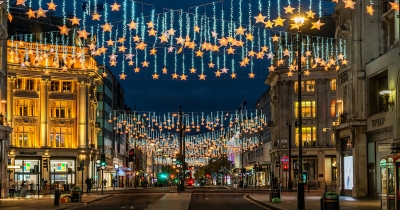Letter from
After its recent political and financial traumas, your correspondent arrived in London expecting to find a sombre, subdued city. Far from it. The Christmas lights were blazing in the West End, and on the weekends it was almost impossible to move while battling the hordes. But it was noticeable that few people were actually carrying shopping bags, and though the stores were crammed, the actual lines at the counters were remarkably short. The high-end restaurants were packed with pre-Christmas parties; after all, in London the rich you will always have with you. It may be my imagination, but the gaiety seemed slightly hysterical, as though this were a version of the duchess of Richmond’s ball – a last frolic before the onslaught.
... (read more)After the horrific massacres in Paris and the ensuing ones in Belgium that were purportedly intended for France, the French were spontaneously drawn together ...
... (read more)Few authors summon the various modes of irony to better purpose than J.M. Coetzee. Typically, before Coetzee gives a reading, the audience can safely suppose that they are in for a good laugh, the odd squirm and cringe, and at least one moment of bewilderment. But there are exceptions to this general rule, and the several hundred people who gathered to hear Coetzee read last week, on a balmy Tuesday evening in Adelaide, were fortunate to witness an atypical performance by the Nobel laureate.
... (read more)The guard with the Kalashnikov singles me out from the other passengers on the border to Ukraine. I am leaving the frozen state of Transnistria. He leads me to a small interrogation room. Four more border patrol guards and a translator are in the room. The men fossick through my bags and ask questions. ‘Are you carrying drugs or weapons?’ ‘Do you deal drugs or weapons?’ ‘Are you aware that you are entering a country that is at war?’
... (read more)Mia Couto’s most recent novel (translated into English in 2004) begins with a ‘large organ on the loose’: a severed penis, like a ‘fleshy hyphen’, is discovered lying on a road in the Mozambican village of Tizangara. It seems that another UN soldier has exploded, for in a nearby tree is a telltale blue helmet. A delegation of Mozambican and UN officials descends on Tizangara, and an Italian, Massimo Risi, is left behind to find out why six UN soldiers have been “eclipsed” and who is responsible. The Last Flight of the Flamingo (first published in Portuguese as O ultimo voo do flamingo in 2000) is Couto’s most successful attempt yet to incorporate the animistic traditions of Mozambican culture into a European fictional framework. It is funny, mercilessly satirical and unmistakably African.
... (read more)It has been raining all week, persistent drizzle unlike the brief downpours that are more typical of Beirut. The city is slumbering. I am staying with my parents. My father goes out less often. My mother is snuggled under the blankets. She hopes the war won’t happen. The kettle is boiling like a purring cat. The house is quiet. Rain is the soporific of cities.
... (read more)The New York City Opera could not have known when they programmed a revival of John Philip Souza’s The Glass Blower just how appropriate it would be post-September 11.
... (read more)Travelling to the Association for the Study of Australian Literature (ASAL) conference on the morning tram, I marvel at Melbourne’s sophistication and self-regard. In Swanston Street, new sculptures honour John Brack’s satire of Melbourne’s regimented workers, while in front of the State Library there’s a classical portal half buried in the pavement, as if the ancient world lies below. At the Trades Hall in Carlton, the framed wall directory is ‘Heritage Only’, so I follow the photocopied paper arrows to the conference venue. There’s more historical self-consciousness here than in the new National Museum in Canberra. Banners assert the importance of eight hours’ work, recreation and rest, and there is a massive socialist realist representation of good Australian workers toiling to keep the country alive. We’re in the sacred place of the Left: Frank Hardy, Stephen Murray-Smith, Judah Waten surely haunt us here.
... (read more)Of all major South-East Asian nations, the Philippines is least known in Australia, and rarely studied, even in our universities. The material and historical differences between the two countries seem to have blinded us to the interests our two countries share. Australia did not support the long Filipino struggle for independence, as with Indonesia’s, nor actively oppose it, as with Vietnam’s. Nonetheless, both countries were part of SEATO and supported US involvement in Indo-China. Within ASEAN, the Philippines has often been the country most sympathetic to greater links with Australia, and the Philippines is regarded as a high-priority country for development assistance by Ausaid.
... (read more)Attending a poetry festival is not normally considered a life-threatening event (not even if you are prone to deep vein thrombosis from constant sitting) but when I told my family I was going to Struga, I was greeted by worried looks and expressions of deep concern. Struga is in the Republic of Macedonia. Just days before, Macedonian hotheads had set fire to a mosque in Prilip (not that far from Struga) in revenge for the death of a Prilip policeman in a road-mine explosion planted by Albanian terrorists. The hair-trigger tensions in that country were clearly dangerous, and possibly escalating.
... (read more)
